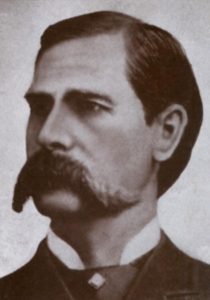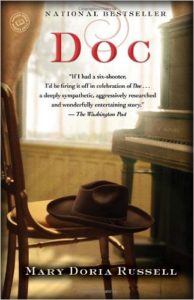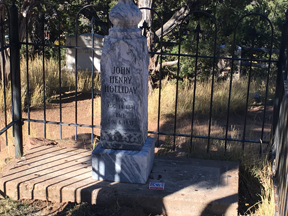Gun Control in the Wild West
Irony of ironies. The town of Tombstone, Arizona, recently proclaimed itself “America’s Second Amendment City” to celebrate its gun-toting past and Arizona’s current status as “the most gun-friendly state in America.” Ironically, the famous gunfight at the OK Corral occurred because the outlaw Clanton gang violated Tombstone’s 1881 gun control law, which required visitors to check their guns at the sheriff’s office until they left town.

Wyatt Earp
Tombstone’s legendary hero, Wyatt Earp, was attempting to enforce this law when the gunfight erupted. By celebrating guns, Tombstone seems to be siding with the cattle thieves and stage robbers against its own historic law enforcement officers. For a great historical novel about Tombstone, check out “Epitaph,” by Mary Doria Russell.

 Forget every stereotype you may hold about Doc Holliday and Wyatt Earp. Forget you may not even like “westerns.” Read Doc, the 2011 historical novel by Mary Doria Russell: you’ll be richly rewarded.
Forget every stereotype you may hold about Doc Holliday and Wyatt Earp. Forget you may not even like “westerns.” Read Doc, the 2011 historical novel by Mary Doria Russell: you’ll be richly rewarded.
